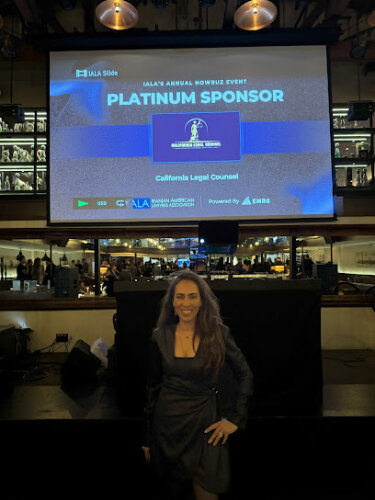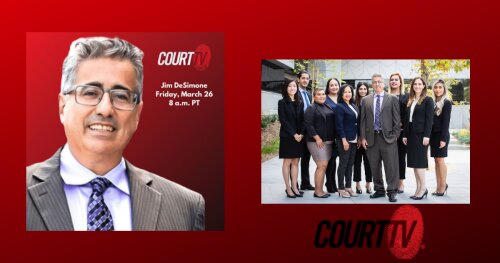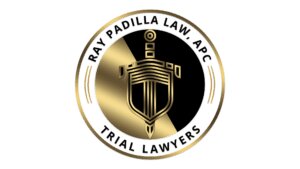Best Civil Rights Lawyers in California
Share your needs with us, get contacted by law firms.
Free. Takes 2 min.
Or refine your search by selecting a city:
List of the best lawyers in California, United States
About Civil Rights Law in California, United States
Civil rights law in California protects individuals from discrimination and ensures equal treatment under the law. These rights originate from federal legislation like the Civil Rights Act of 1964, as well as state laws and the California Constitution. Civil rights in California cover areas such as employment, housing, education, public accommodations, voting, and interactions with law enforcement. The state is known for having some of the most progressive civil rights protections in the United States, offering broader coverage than federal laws in certain areas.
Why You May Need a Lawyer
There are many situations where people in California might need legal assistance for civil rights issues. Some common reasons include:
- Experiencing discrimination at work based on race, gender, disability, religion, sexual orientation, or other protected characteristics
- Being denied housing or facing eviction due to unlawful discrimination
- Encountering police misconduct, such as excessive use of force or unlawful searches and seizures
- Being subject to harassment or unequal treatment at school
- Experiencing retaliation for whistleblowing or reporting discrimination
- Issues related to access for people with disabilities
- Concerns involving voting rights or access to public services
A lawyer can help you understand your rights, assess whether your civil rights have been violated, and represent you in negotiations or court proceedings.
Local Laws Overview
California has several key laws in place to protect civil rights:
- California Fair Employment and Housing Act (FEHA): Prohibits discrimination and harassment in employment and housing based on characteristics such as race, religion, color, national origin, ancestry, physical or mental disability, medical condition, sex, gender, sexual orientation, marital status, and age.
- Unruh Civil Rights Act: Ensures that all persons in California are free from discrimination by all business establishments, including hotels, restaurants, theaters, hospitals, and retail stores.
- Bane Act and Ralph Act: Provide additional protections against hate crimes and violence, as well as intimidation or interference with constitutional rights.
- California Voting Rights Act: Safeguards the right to vote and seeks to prevent practices that dilute minority voting power.
- Disability Rights Laws: State and federal laws require businesses, schools, and public spaces to provide reasonable accommodations and access for people with disabilities.
- California Constitution: Grants broader civil rights and privacy protections compared to federal law in some instances.
These state laws often work alongside federal protections, providing overlapping or even greater safeguards for individuals living in California.
Frequently Asked Questions
What are my basic civil rights in California?
Your basic civil rights include freedom from discrimination based on certain protected characteristics, the right to equality under the law, the right to fair housing and employment, the right to vote, and freedom of speech and assembly.
What should I do if I believe my civil rights have been violated?
Document what happened in detail, gather evidence like emails or witness statements, and consult with an experienced civil rights attorney or a relevant government agency as soon as possible.
How do I file a discrimination complaint in California?
You may file a complaint with the California Civil Rights Department for employment, housing, and public accommodations discrimination. You may also have the right to file a lawsuit in court depending on the circumstances.
How long do I have to file a civil rights claim?
Time limits vary by type of claim. For many employment discrimination cases in California, you must file a complaint with the Civil Rights Department within three years of the alleged harm. Other claims may have shorter or longer statutes of limitations, so it is crucial to consult with a lawyer quickly.
Can I sue a government entity for violating my civil rights?
Yes, but there may be special rules and shorter deadlines for claims against public entities. You may have to file an administrative claim before going to court.
What types of damages can I recover in a civil rights lawsuit?
You may be entitled to compensation such as back pay, reinstatement, emotional distress damages, punitive damages, and sometimes attorney fees. This depends on the facts of your case and the laws involved.
Are undocumented immigrants protected by civil rights laws in California?
Yes, most civil rights protections in California apply regardless of immigration status, including protections from employment and housing discrimination.
What can I do if I experience police misconduct?
You have the right to file a complaint with the law enforcement agency, seek help from a civil rights attorney, and file a lawsuit if necessary. Document everything and seek legal advice as soon as possible.
Who enforces civil rights laws in California?
Various agencies enforce civil rights laws, including the California Civil Rights Department, U.S. Equal Employment Opportunity Commission, U.S. Department of Housing and Urban Development, and the California Department of Justice.
Can I handle a civil rights case on my own?
Some cases can be handled individually, especially initial complaints, but civil rights law is complex. Having legal assistance greatly increases your chances of a successful outcome.
Additional Resources
Individuals facing civil rights issues in California can find help at the following organizations and agencies:
- California Civil Rights Department (CRD) - Handles employment, housing, and public accommodations discrimination
- American Civil Liberties Union of Northern, Southern, and San Diego-Imperial Counties (ACLU California affiliates)
- California Department of Justice - Civil Rights Enforcement Section
- Equal Employment Opportunity Commission (EEOC) - Federal employment discrimination agency
- Legal Aid at Work - Free legal services and clinics for workers
- Disability Rights California
- Local bar associations and legal aid societies
Next Steps
If you believe your civil rights have been violated in California, here is what you can do next:
- Write down all relevant details as soon as possible while they are fresh in your mind
- Collect any evidence, such as photos, documents, communications, or witness contact information
- Contact an experienced civil rights attorney who can advise you about your rights and legal options
- Consider filing a complaint with the appropriate government agency, such as the California Civil Rights Department or the EEOC, which may have deadlines for action
- Explore free or low-cost legal help if you are not able to afford a private attorney, by reaching out to legal aid organizations or advocacy groups
Taking these steps can help protect your rights and increase your chances of achieving a fair and just outcome.
Lawzana helps you find the best lawyers and law firms in California through a curated and pre-screened list of qualified legal professionals. Our platform offers rankings and detailed profiles of attorneys and law firms, allowing you to compare based on practice areas, including Civil Rights, experience, and client feedback.
Each profile includes a description of the firm's areas of practice, client reviews, team members and partners, year of establishment, spoken languages, office locations, contact information, social media presence, and any published articles or resources. Most firms on our platform speak English and are experienced in both local and international legal matters.
Get a quote from top-rated law firms in California, United States — quickly, securely, and without unnecessary hassle.
Disclaimer:
The information provided on this page is for general informational purposes only and does not constitute legal advice. While we strive to ensure the accuracy and relevance of the content, legal information may change over time, and interpretations of the law can vary. You should always consult with a qualified legal professional for advice specific to your situation.
We disclaim all liability for actions taken or not taken based on the content of this page. If you believe any information is incorrect or outdated, please contact us, and we will review and update it where appropriate.
Browse civil rights law firms by city in California
Refine your search by selecting a city.
















